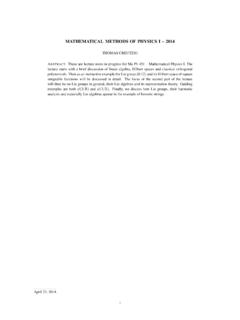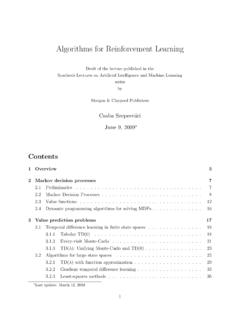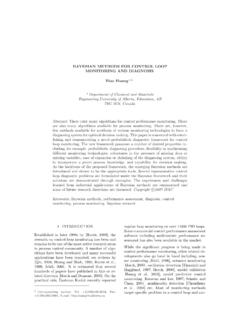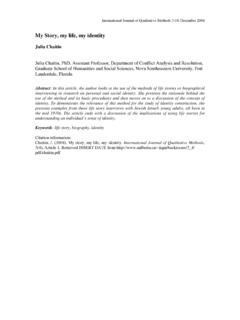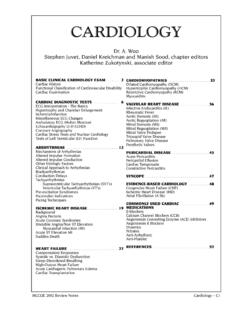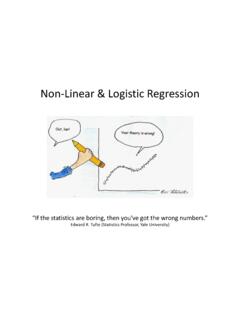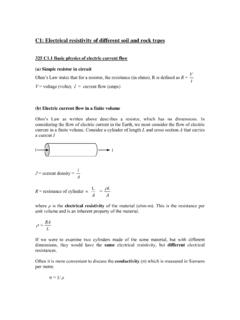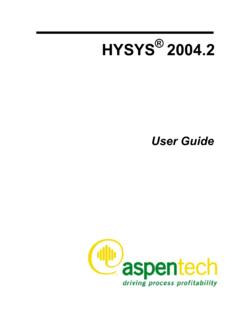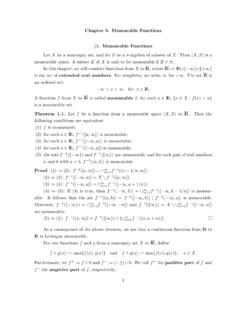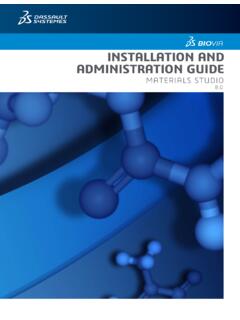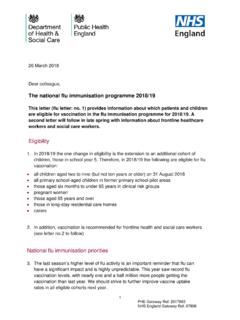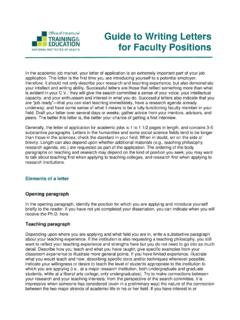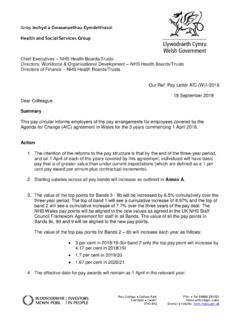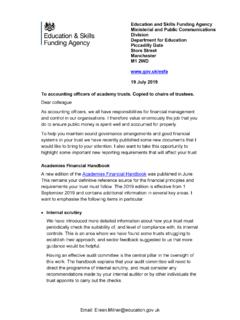Transcription of reference letters magazine - University of Alberta
1 reference letters What is a reference letter ? 3. Uses for reference letters 3. Who makes a good reference ? 3. What makes a good reference letter ? 3. How do you obtain a good reference letter ? 4. Additional considerations 4. Advice to potential referees 5. Permission and privacy 6. Sample reference letters Tepid reference 7. Former Supervisor References 8. Scholarship reference 10. School reference (French) 11. Immigration Application reference 12. Graduate School reference 13. Sources 14. 2. What is a reference letter ? A reference letter is a letter of recommendation from a previous or current supervisor, professor, co- worker, peer or personal contact who can describe the knowledge, skills or aptitudes that you possess.
2 Uses for reference letters reference letters can be used when looking for work or applying to graduate school. reference letters may be required when applying for monetary awards, such as a fellowship or grant. When presented selectively in a portfolio, reference letters provide compelling evidence to an employer or committee about your abilities. While your referees can provide a verbal reference , letters can be used if your reference has moved away, is no longer with the organization, or is out of reach for some reason, such as on holiday, when you need to supply your references.
3 Who makes a good reference ? When looking for employment, a current or previous employer or direct supervisor is the best reference . It is also acceptable to include a direct supervisor from unpaid employment, such as a practicum or a volunteer position. When applying for graduate or professional school, persons who can comment on your academic achievements, such as a professor, or a professional who is active in the field you wish to enter, are excellent choices. Personal and/or professional acquaintances for example, a high-ranking community member or professional in good standing whom you know personally are also acceptable.
4 What makes a good reference letter ? Use of action verbs to describe your accomplishments, skills and strengths. Use of the active voice which indicates that you completed tasks and demonstrated desirable behaviours. The passive voice can indicate that events happened to you and tasks would have been completed whether you were there or not. How you performed the responsibilities required for the position or role. A glowing reference letter will include how you exceeded expectations in your position/role, even if it is only in one area. Descriptions of your contributions to the work/academic environment, whether in regards to your work habits, such as completed tasks on time, or your personal strengths, for example you are collegial and supportive.
5 If possible, a statement indicating that the referee would re-hire you or collaborate with you on another project. People may also work several times for the same organization and it is beneficial for you if the letter indicates that you worked for or with the referee several times or that they expect to work with you in the future. The referee's contact information including his or her full name, appropriate title, address, phone number and/or e-mail address. 3. How do you obtain a reference letter ? First, do a good job. No one owes you a reference letter and your supervisor may turn you down if they feel your work has been less than satisfactory.
6 Avoid asking for a reference letter during a peak period, such as in the middle of marking mid-terms or preparing payroll, since a letter written on the fly may be inadequate. Appreciate their honesty if your supervisor or professor declines your request since a mediocre or poor reference letter may be harmful to your candidacy. Indicate what you are using the letter for and who you are giving the letter to because this improves the focus of the letter . Offer your referees a copy of your up-to-date and a brief description of the position or types of positions that you are applying for.
7 Your referees can write specifically about your skills in relation to the position(s). Your referees will also need time to write a good letter , so give them at least two to three weeks to prepare the letter . Your referees also need to know: The name of the person they are addressing the letter to. If you are using the letter for your portfolio, it is acceptable to address the letter Dear Sir or Madam . The date the letter is needed and whether you will pick the letter up or the address to which the letter should be sent. How to contact you if they have questions or to tell you that the letter is ready for pick-up, or if the letter has been sent.
8 Number of copies you require. If you get a great letter for one application, why not ask if you can get additional copies for future use? Additional considerations Detailed, targeted reference letters are much more effective than general reference letters . When you ask someone for a written reference , ask for permission to use them as a verbal reference as well. Each time you supply their name as a reference , you should, as a courtesy, contact them to tell them that someone may be in touch with them. It is not very helpful to your application if your referee responds with Who are you talking about?
9 When called for a reference . Three references for each application are usually sufficient unless you are asked to supply more. If asked to supply a reference letter when applying, it is acceptable to submit a photocopy. Bring the originals to the interview but always keep them in your possession. It is hard to replace good reference letters , especially if you are no longer in personal contact with the referee. Thank everyone who provides you with a reference letter . A good letter will have taken several hours to complete so they deserve your appreciation and/or an update on the results of the competition.
10 reference letters get old. As you progress in your career, you should continue to acquire references who can talk about your work, personal traits and skills. You should also maintain your contacts so you can ask them for updated material if necessary. This booklet includes several different samples of reference letters for different situations. These letters are meant only as suggestions. Do not copy any of the letters and provide them as a reference letter for a referee to sign. Some applicants have copied templates, sometimes word for word, merely changing the name and position of the person on the template to suit the person who offered to write a reference .
